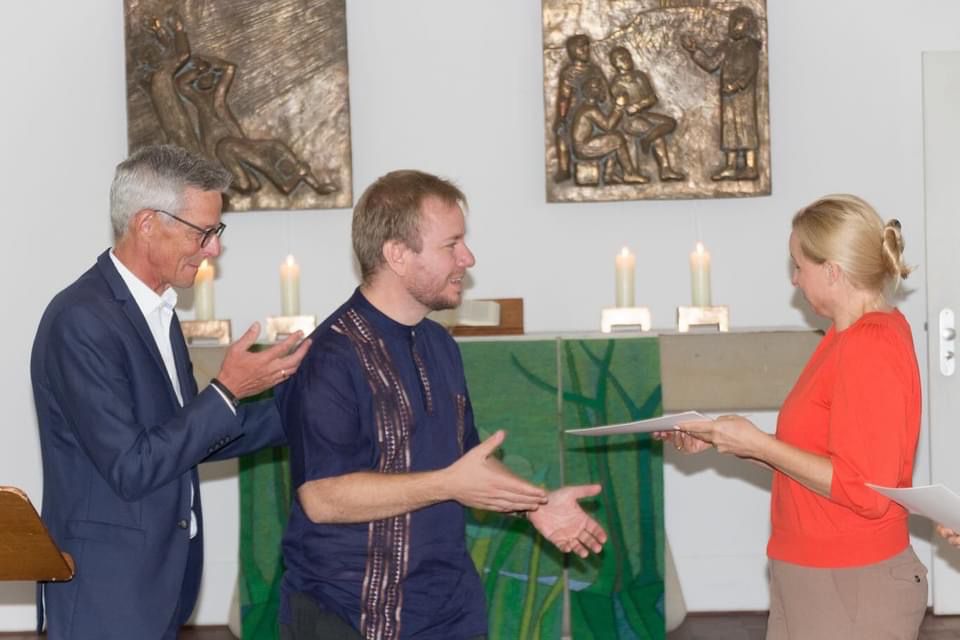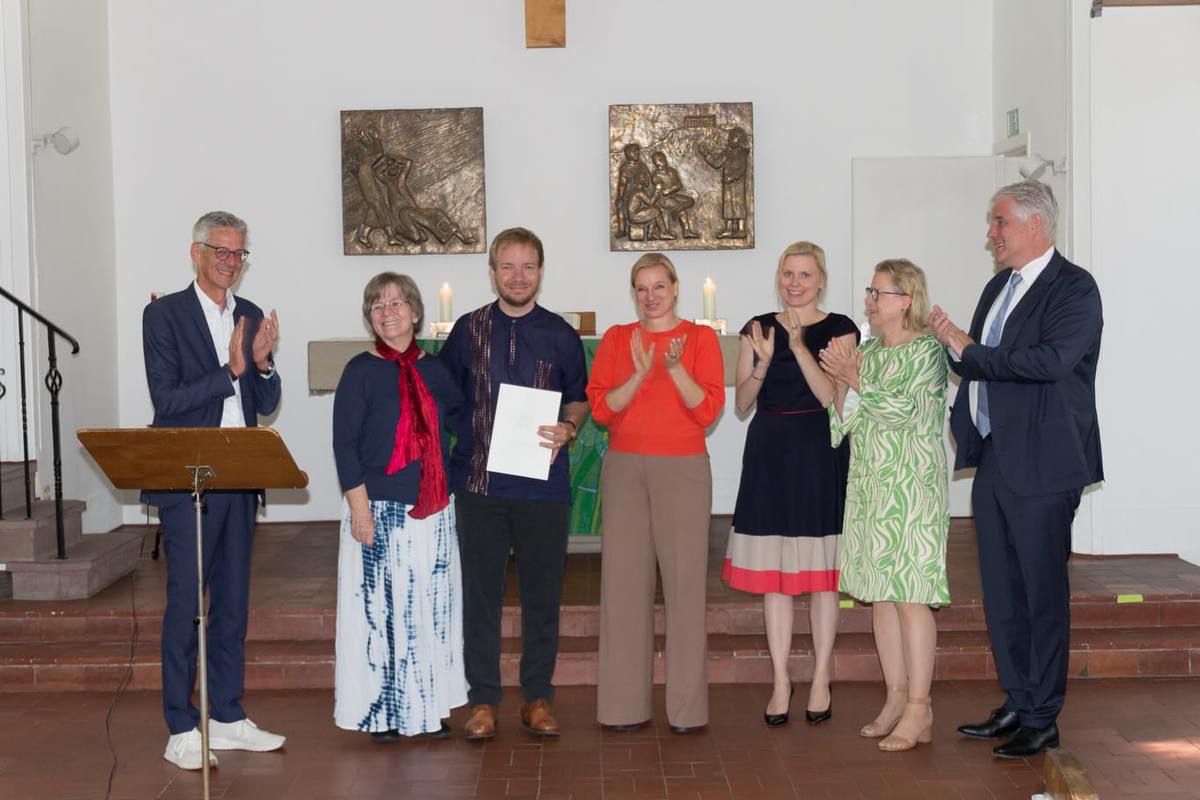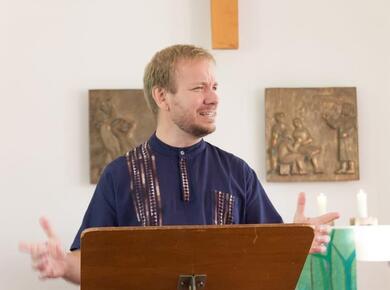Posted: October 8, 2024
What do music star Shakira and biblical prophet Deborah have in common? In a special service on 6 September 2024, Riki Neufeld explored revenge songs through a peace lens with the Mennonite congregation in Hamburg-Altona, Germany. The Center for Peace Theology at University of Hamburg, Germany, and the congregation awarded the Menno Simons Sermon Prize to Riki Neufeld, pastor of the Schänzli Mennonite congregation in Muttenz, Switzerland.
Riki Neufeld was studying Deborah’s Song in Judges 5 around the same time when ‘I can buy myself flowers’ by Miley Cyrus and ‘Última’ by Shakira became hit songs. In these songs, the women process their heartbreak not by complaining about their suffering, but rather by settling the score through catchy lyrics such as “I can love me better than you can” or ‘you traded a Rolex for a Casio’.
Another catchy tune
Judges 5 is not a song of heartbreak, rather about settling score in a bloodier way. If anyone wanted to find a Biblical text to legitimize military support to fight tyranny, Judges 5 would be it, Riki Neufeld said.
However, it is not superior weaponry that wins, but God and the forces of creation that stand against the attackers. In verses 19-21 Deborah sings of the water, stars and brook of Kishon sweeping the enemies away.
And then, in verses 24-27, Deborah sings of Jael who killed the enemy Sisera. She does not hold back. She sings of how Jael “struck..., crushed..., shattered.... and pierced” Sisera. The mighty tyrant “sank..., fell... lay still between her feet, ...dead.”
“I can imagine this would have been a catchy tune,” said Riki Neufeld. “Something difficult for us, as a peace church, to chew.”
A second look
“There is something satisfying about the story,” said Riki Neufeld. “We sympathize the people who were being unjustifiably attacked, rejoice when the tyrant was killed and the people liberated. But Deborah’s song does not end there.
In verse 28 of her victory song, she sings of Sisera’s mother’s grief over the killing of her son.
Deborah takes a second look and sees a common humanity: “Every soldier, whether Israelite or Canaanite, Ukrainian or Russian, Israeli or Hamas fighter, has a mother who fears for him,” said Riki Neufeld. “It is a task for the church to continuously sharpen this second look amid the conflicts of this world” – military, geopolitical or interpersonal.
“This mission that Jesus calls us to do has an element of impossibility about it… Seeking humanity in the enemy again and again – taking that second look – is not achievable through sheer willpower,” he said.
We can only live this mission through the power of the Holy Spirit within us that gives us purpose and the resilience to do this each day of our lives, he said.
The full version of this sermon was first delivered on 26 February 2023, one year after the Russian invasion of Ukraine, to the Mennonite congregation in Schänzli, Switzerland.
Member of the judging panel Fernando Enns called it brave for a peace church member to face such a violent text. “It takes courage to preach when you don’t shrink away from the ambivalences of the text as well as our own experience …. It doesn’t calm you down but invites you to honest discussion – and in this way it provides a new perspective on God’s calling.”
“Our standpoint as Mennonites is clear: we are a peace church who love our enemies, but also hate injustices,” said Riki Neufeld. “Some people still struggle with how to reconcile the two and live this teaching on a day-to-day basis. This motivated me to send the text to Fernando Enns to be considered for the prize.”
Read more about the International Menno Simons Preaching Award here
|
The Center for Peace Church Theology at the University of Hamburg invites you to send your very special sermons by 1 December 2024 to participate in the international Menno Simons Sermon Award. You can find information about the awarding of the prize on the homepage in 4 languages: https://www.theologie.uni-hamburg.de/einrichtungen/arbeitsstellen/friedenskirche/menno-simons-predigtpreis.html and find out more about the Center in English on the homepage https://www.theologie.uni-hamburg.de/en/einrichtungen/arbeitsstellen/friedenskirche.html |

|

|

Comments: